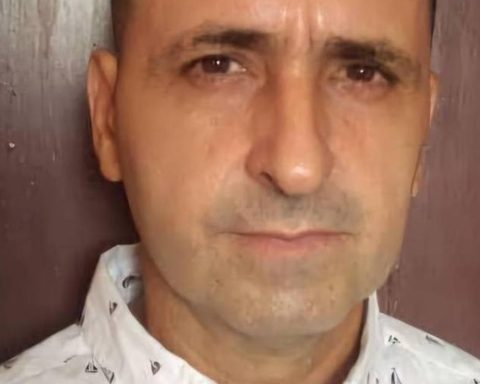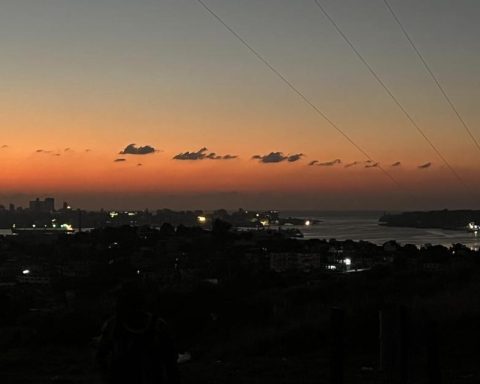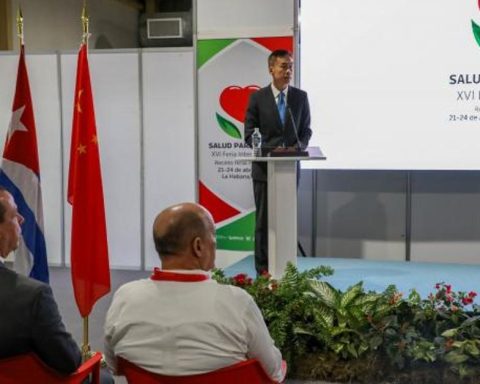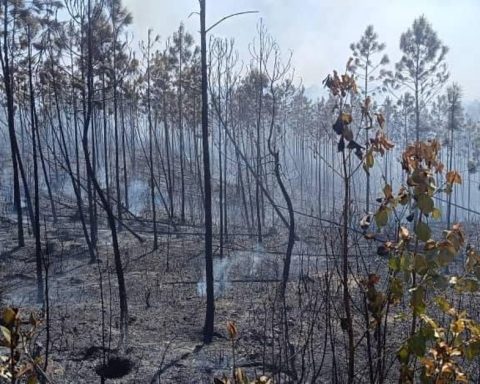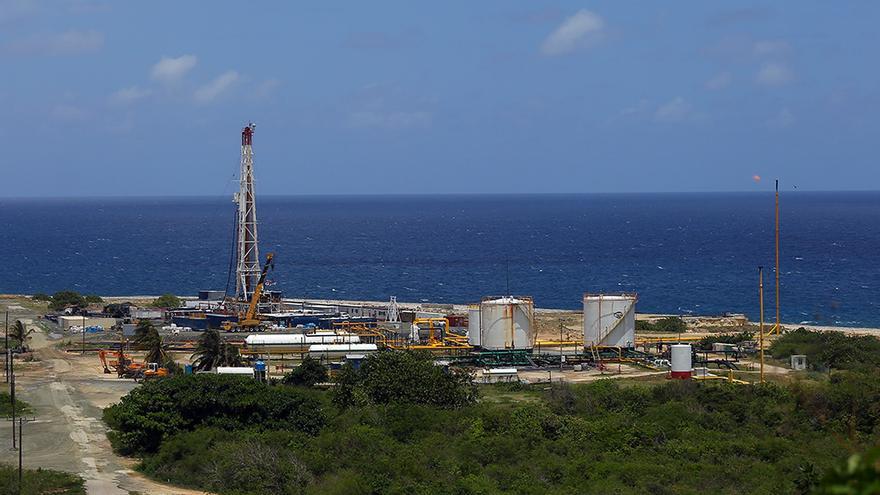
The residents of Puerto Escondido, in Santa Cruz del Norte (Mayabeque), leave one battle to enter another. A couple of months ago they denounced the installation of a gas pipe in the middle of their sports field and now they are claiming the Energas company for the flames that their plant exhales, accompanied by explosions, the smell of hydrocarbons and the loud sound of a siren. “They are going to kill us from the heart,” says Paco, 56, and born in what was once a beautiful spa.
“This happens at any time, the same day as at dawn and since the town is very close to the Energas facilities, there is no one who sleeps when these tufts larger”, Paco tells 14ymedio. The residents call the flare that appears at the top of the chimney of the industrial facility “mechón”, sometimes smaller, but other times so large that it illuminates the entire town and is accompanied by the activation of a fire alarm. security.
The increase in strands has coincided with a growth in the exploitation of the Puerto Escondido gas fields by Energas, the joint venture managed by the Canadian company Sherritt and the Cuban state company Cupet, in addition to Unión Eléctrica, of which Some 200,000 cubic meters of gas are currently being extracted per day and production is expected to double in the coming months.
“First you hear an explosion or several and then you see the fire up there that grows and grows, so you spend a good time and meanwhile the whole town is filled with smoke and a tremendous plague,” the Mayabequense explained. “For several weeks the situation has worsened because the explosions, fire and bad smell are more and more frequent. People are more afraid after what happened in the Matanzas Supertankers.”
Puerto Escondido’s industry includes a crude gas processing plant and a turbine, to which is added an electrical generator with a power of 20 megawatts. The energy stability of various hotels in the area depends on the latter, while the gas is transferred through pipelines to part of the city of Havana that is also fed by the Boca de Jaruco plant.
“The fire roars for hours,” describes Maritza, who when the noise wakes her up at dawn sits in the doorway of her house. “Sometimes it seems that the sun is rising because the clarity of the fire makes everything light up. My grandchildren are afraid of sleeping like this, this is not life. We are scared,” says the woman who also complains about the few advantages from the proximity of the plant.
“We don’t even have street gas supply [manufacturado que llega a través de tuberías]. Here in Puerto Escondido, the few people who have a liquefied gas contract are sold one balita a year, the rest of us cook with electricity, firewood or whatever appears,” Maritza details. “The only thing that brings us is pain in this industry upside down and sleepless nights”.
In the year 2000, the Cuban government decided to exploit the gas in Puerto Escondido. Then well number 14 was opened in the place, which was added to those that previously supplied national oil but that were frequently flooded with sea water. Over the years, the Cupet-Unión Eléctrica-Sherrit coalition has drilled more to 200 wells and plans to further expand the extraction area.
“Here in Puerto Escondido, the few people who have a liquefied gas contract are sold one bullet a year, the rest of us cook with electricity, firewood or whatever appears”
The authorities’ lack of transparency about what is happening at the Energas plant fuels fears. This week the official media reported a failure in the switch of the industry’s compressor system, which supplies gas to Havana, which occurred at 12:10 last Sunday. Residents of Puerto Escondido found out Monday morning on national television.
“They didn’t tell us anything, we were here in the town as if nothing had happened and later we found out that something had happened in Energas. We saw many cars coming and going, some alarm. Even the official television came, but no official came to show their faces to reassure us or clarify whether or not there was danger for us”, denounces Maritza. “They never show their faces, neither the Cubans nor the Canadians.”
The break in the plant was reported on national television but the cameras and microphones did not reach the small community that suffers the ravages of the proximity of the industry. “The journalist who came was Bernardo Espinosa, but he did not go through the town or interview any of the residents,” adds the woman. “We were waiting for him as a good thing to tell him about the contamination, about the trees that are dying and what they did to the ball field.”
“He did not come to ask us about that plant. He was not interested in talking to the people of the town, neither do government officials nor those of Sherritt come,” stresses Maritza, who recalls that after the installation of concrete piles in the sports area , to lay a gas pipeline, were only removed from the site after 14ymedio publish the complaints of the residents.
“They came immediately, the day after the article came out several managers arrived. They didn’t say anything, they didn’t talk to the people but they went from here to there around the ball field. Then they left and a few days later they removed the piles and put them up for one side of the field. It was a victory”, considers the woman, although she acknowledges that “there is still a lot to achieve because we do not deserve any of what is happening to us”.
Another resident of Puerto Escondido, who prefers to remain anonymous, also regrets that there is no mobile phone coverage in the town. “You have to walk a kilometer to the road to have a signal and be able to make a call or connect to the internet.” “They had approved the installation of an ETECSA tower on a hill in the town, but, even though they even made the way, the structure never arrived. We stayed waiting.”
“They charge us very expensive for mobile phone service, but here in Puerto Escondido we pay those rates and we are receiving a very bad service. We are tired of complaining to the authorities and nothing happens or they do nothing,” he concludes. “It would seem that they want to keep us cut off from the world so that we cannot tell what we are experiencing every day.”
Some residents are even betting on changing the name of the town to show the institutional abandonment in which they find themselves. “This, more than Puerto Escondido, already deserves to be called Puerto Olvidado.”
________________________
Collaborate with our work:
The team of 14ymedio He is committed to doing serious journalism that reflects the reality of deep Cuba. Thank you for accompanying us on this long road. We invite you to continue supporting us, but this time becoming a member of our newspaper. Together we can continue transforming journalism in Cuba.

